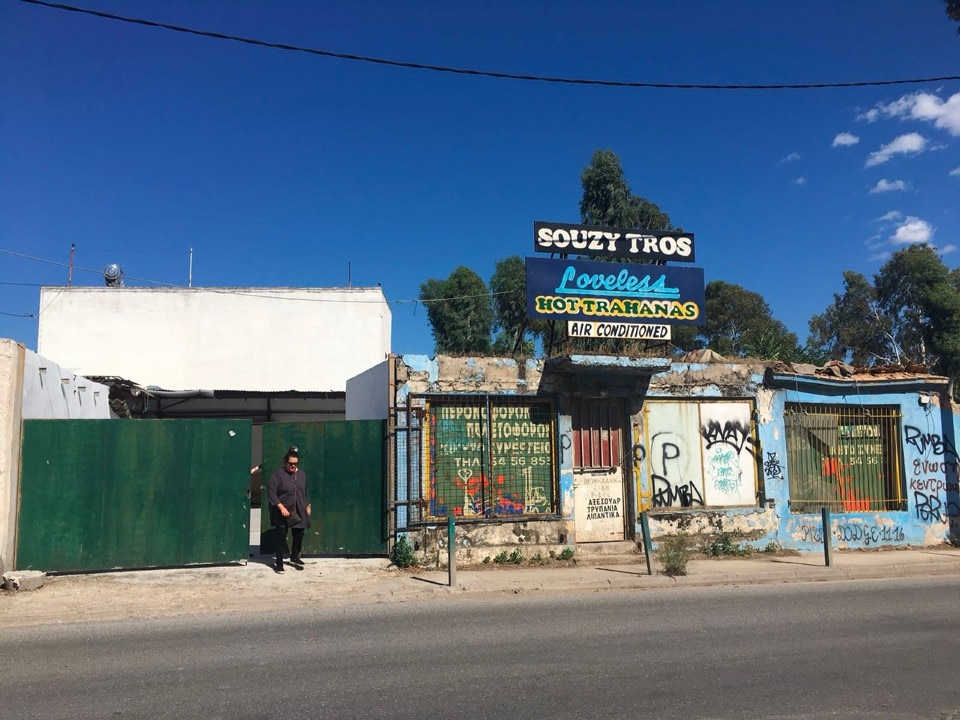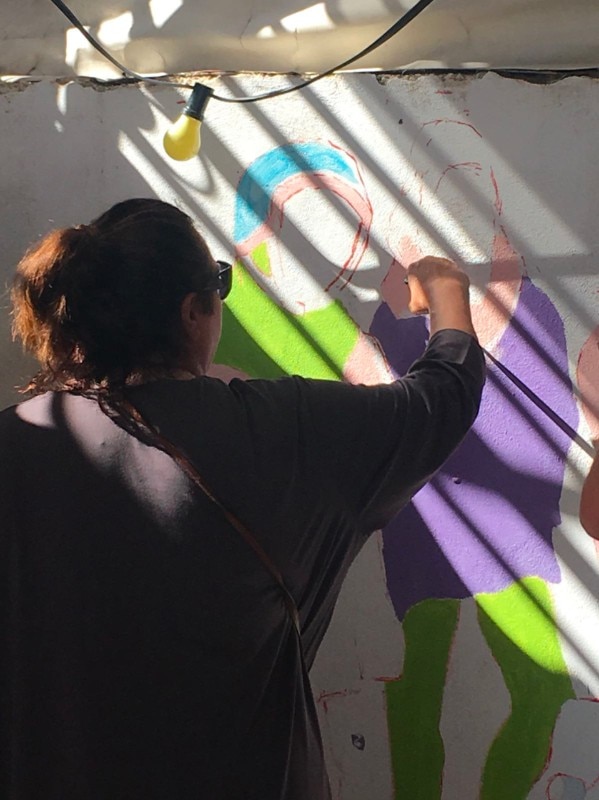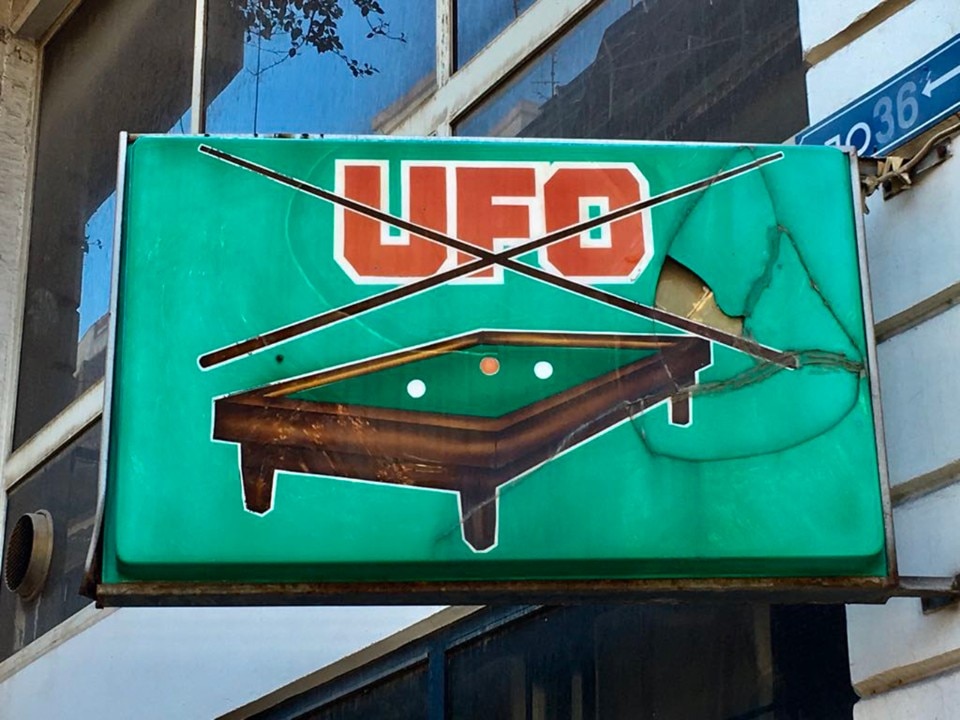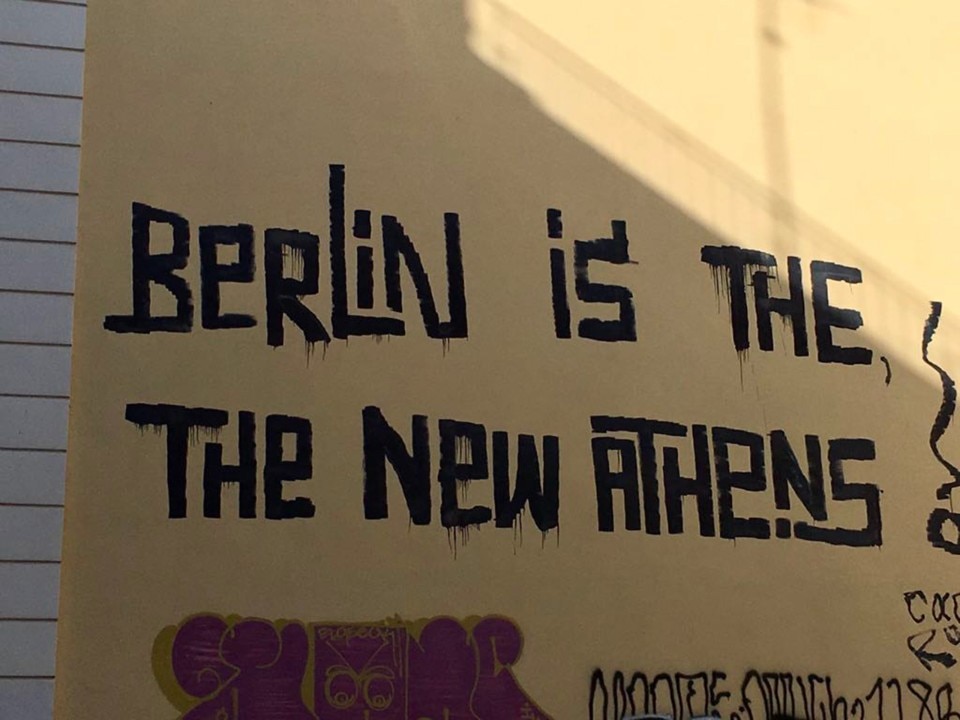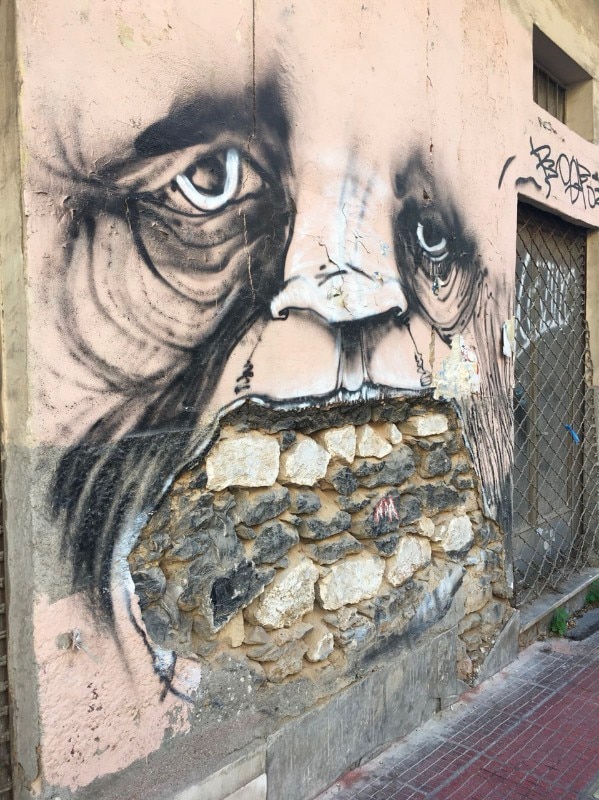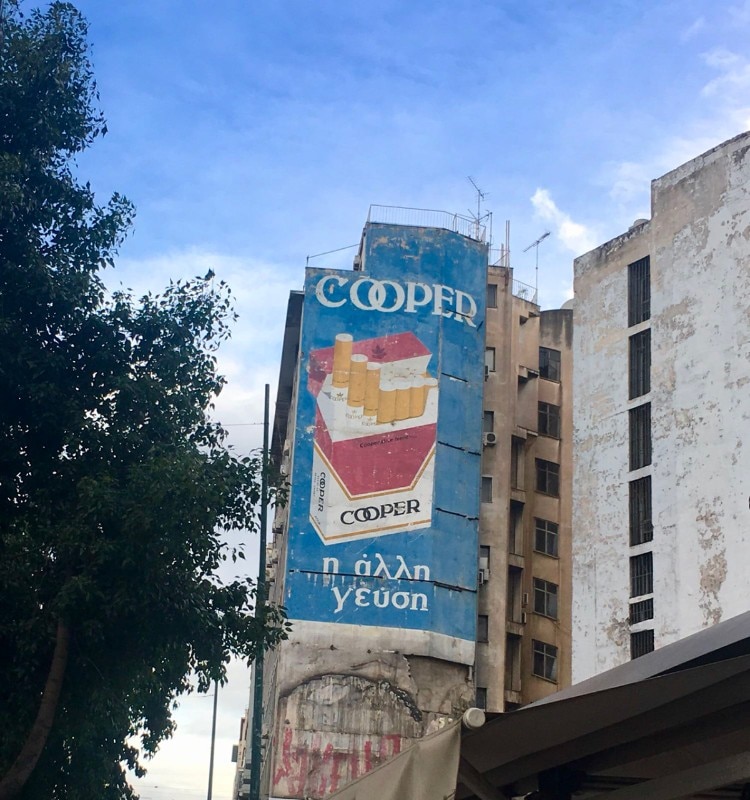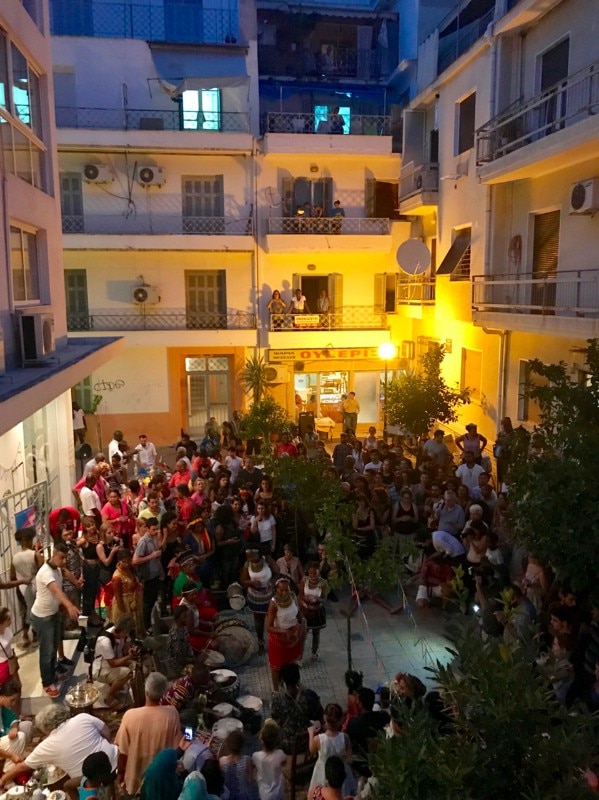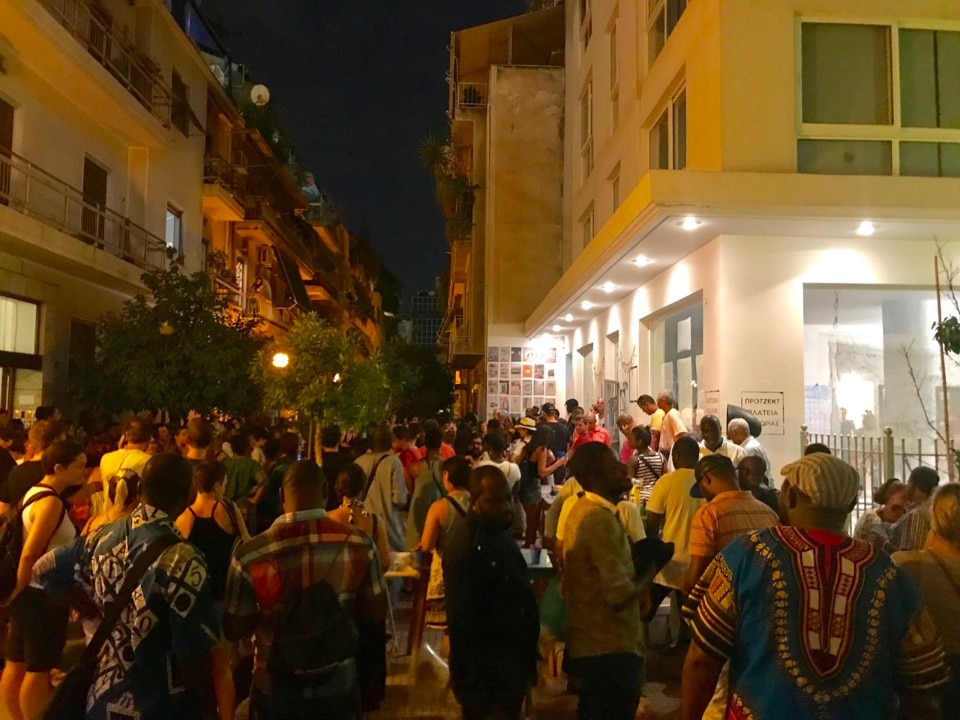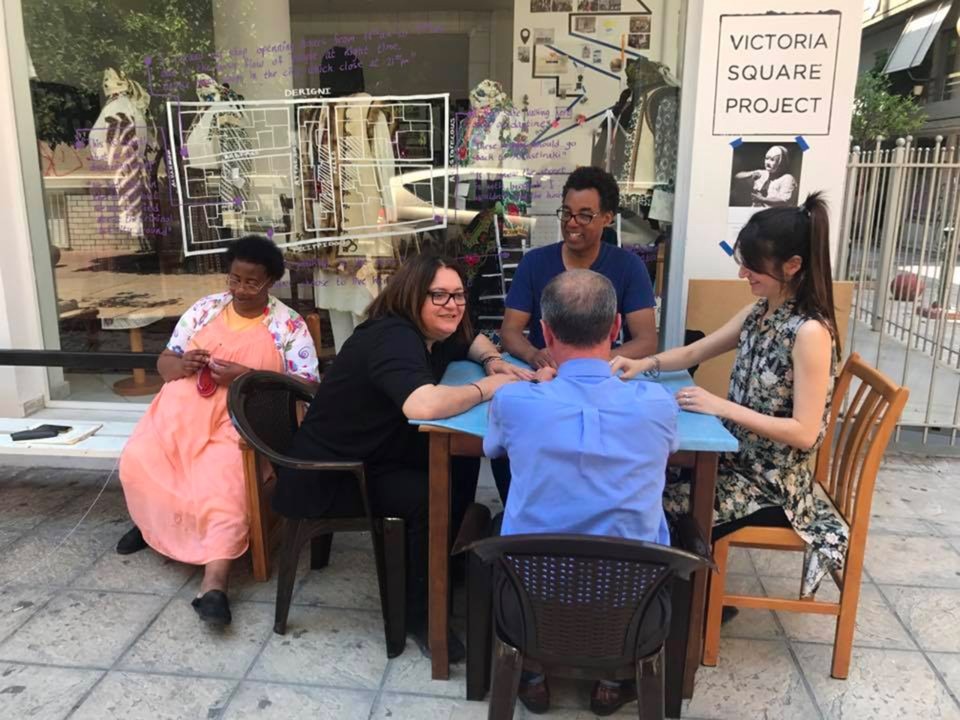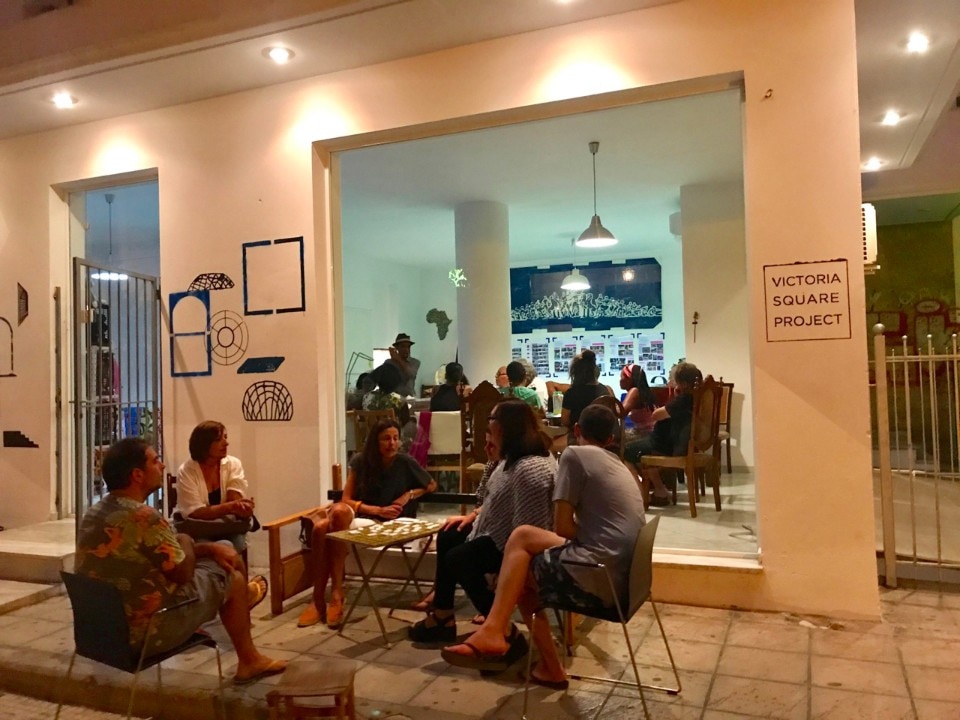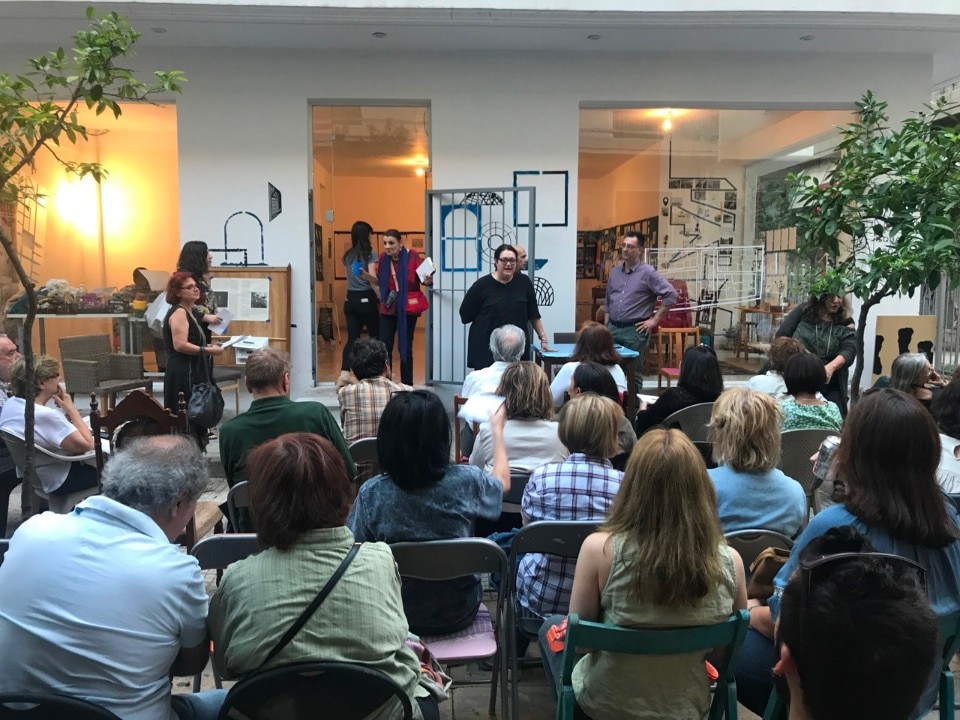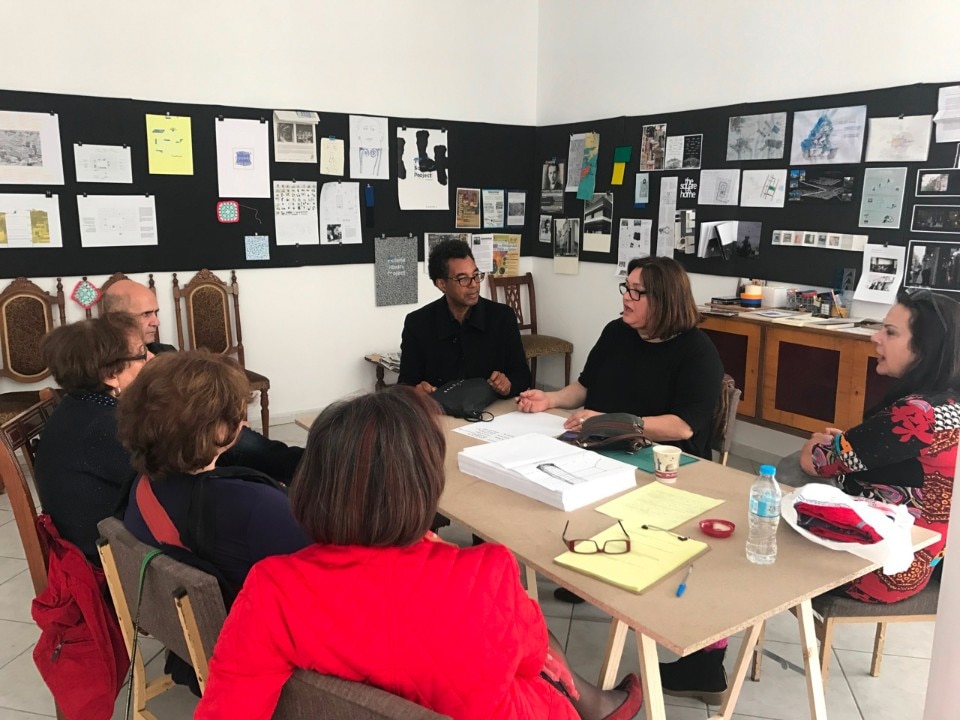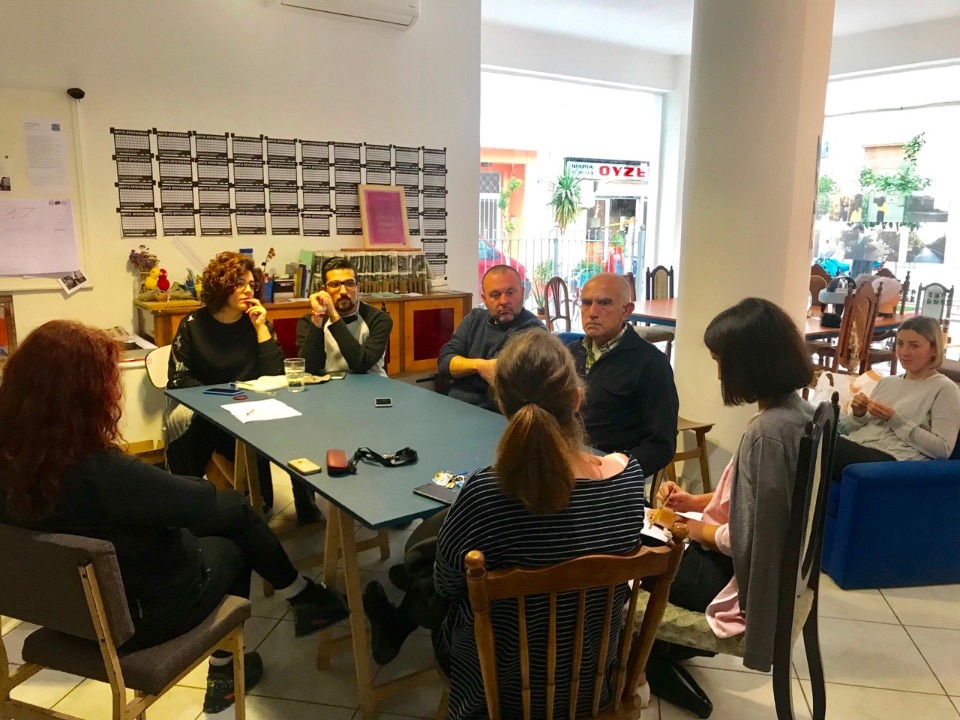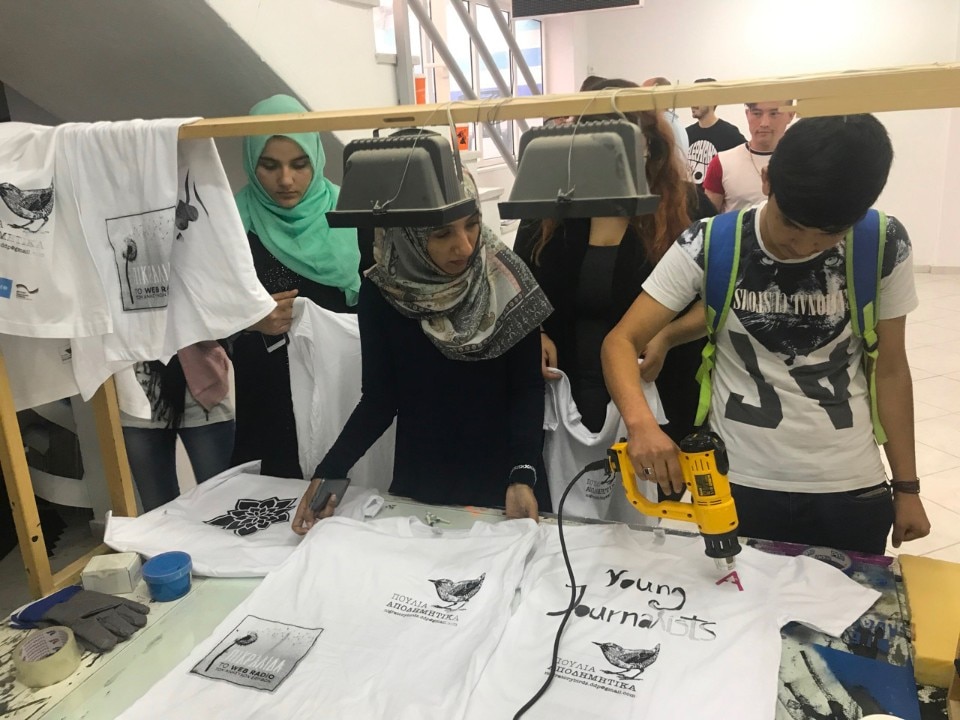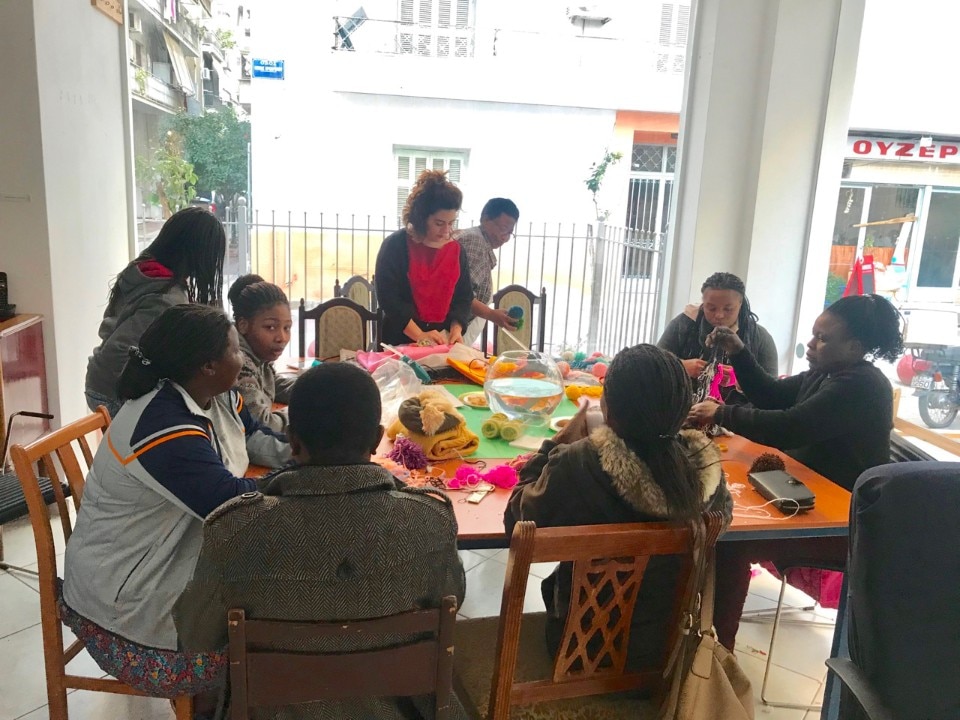Today, Athens is an estranged city: harsh and welcoming, melancholic yet active and engaging. The crisis that since 2008 has tightened its strange hold has also worn away at the urban fabric and institutions. The arrival of refugees from Syria and other countries has further complicated the situation. And yet, the cultural scene is more and more international and connected, top galleries have kept working, and dynamic and experimental non-profits for contemporary art keep popping up. This is the case of State of Concept, or Neon, supported by the collector Dimitris Daskalopoulos and, though having no permanent venue, holds exhibitions in different locations.
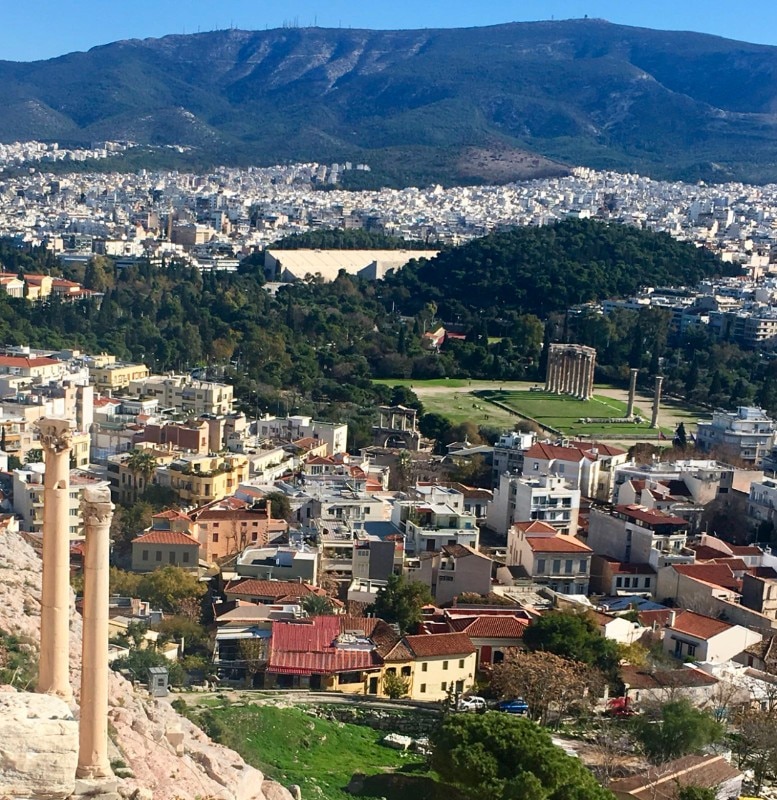
The fact remains that today, across the run-down and shabby streets of Athens, it’s hard to imagine that not too long ago the city was ringing with optimism. Initially, with European funds for the city’s redevelopment and subsequently with money intended for countries hosting the Olympics, in 2004. Of course, in that phase, too, the city kept avoiding any rational model. But the euphoria was evident and some changes, like the creation of the underground and city trains, were decisive in terms of liveability.
Instead, today, the few steps taken mainly depend on private funding. The key example in these past years is the Stavros Niarchos Culture Centre, designed by Renzo Piano for the foundation by the same name. The very popular Centre includes, among other things, new structures for the Library and for the National Opera, a raised promenade and one of the city’s largest green areas where people can meet and eat.
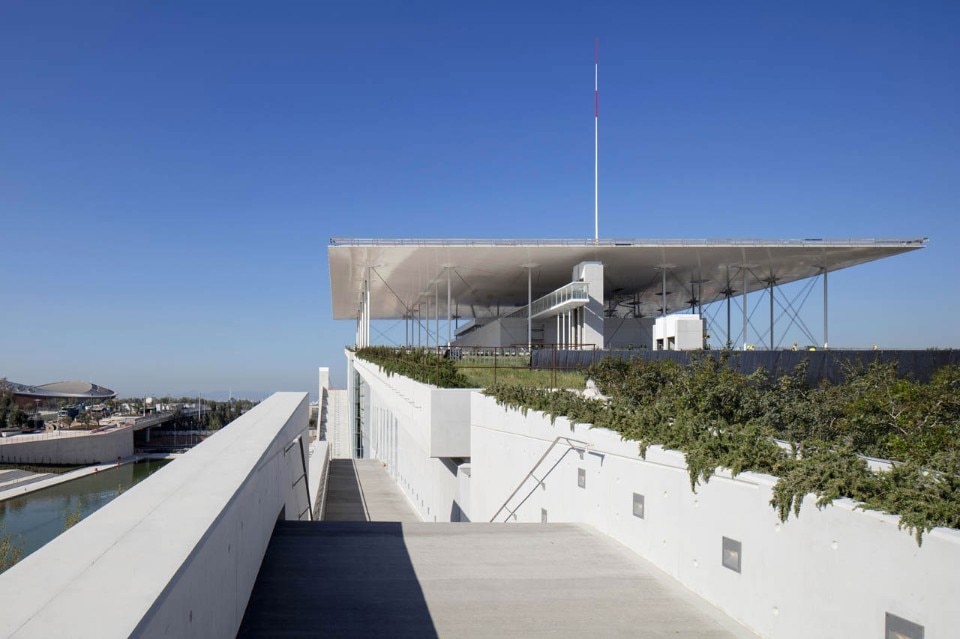
Though complex, the current situation presents some interesting implications. In fact, the crisis created the need to reflect on important issues: new forms of experimentation, research, engagement. In turn, these made the city attractive to professionals in the field, including curators and artists who, in addition to actively taking part in city life, moved here. Documenta 14, the prestigious event held every five years and which this year will take place in both Kassel and Athens, contributed to the phenomenon. Among the most interesting events stimulated by the crisis and institutional paralysis there are the numerous initiatives related to alternative forms of living, to new approaches to urban spaces, and possible practices of solidarity.
The designer and artist Matthieu Prat, for example, moved to Athens from France and opened the city workshop Cassandra. His space, located in the partially abandoned production centre of Votanikos, is an unfinished building: the lower floors are complete, though coarse, whereas there’s only the framework for the two upper floors. Pratt is poised between architecture and activism. His work is based on the idea of self-construction and involves the refugees of a nearby migrant camp.
The Hotel City Plaza is an exceptional project: opened in 2016 when a hotel that had been closed for six years was occupied by activists and transformed into a welcome centre for refugees and asylum seekers. Since then, thousands of people have passed through its doors: some for just a few days, others for months, waiting to enter into special programmes or continuing on with their journey to other countries. The waiting list is always long: it ranges from 200 to 2,000 people. There are around 120 rooms. The guests are 350-400 each time. The organisation is based on cooperation. Funding comes from different sources, though institutional. The rules are always few but strict: inside the building everyone is equal. Social discrimination, violence, alcohol and drugs are not permitted.
Among the most interesting events stimulated by the crisis and institutional paralysis there are the numerous initiatives related to alternative forms of living, to new approaches to urban spaces, and possible practices of solidarity.
Hotel City Plaza is located right near the turbulent yet lively Exarchia quarter, inhabited by anarchists and stage to periodical protests: “Against police violence, against the corruption of the public administration, against the criminalisation of migrants and their reclusion in detention centres, against the greediness of private companies, against the exploitation of tourist and natural resources,” according to an article in Libération in December 2016 by Paul B. Preciado who moved to the city for Documenta 14.
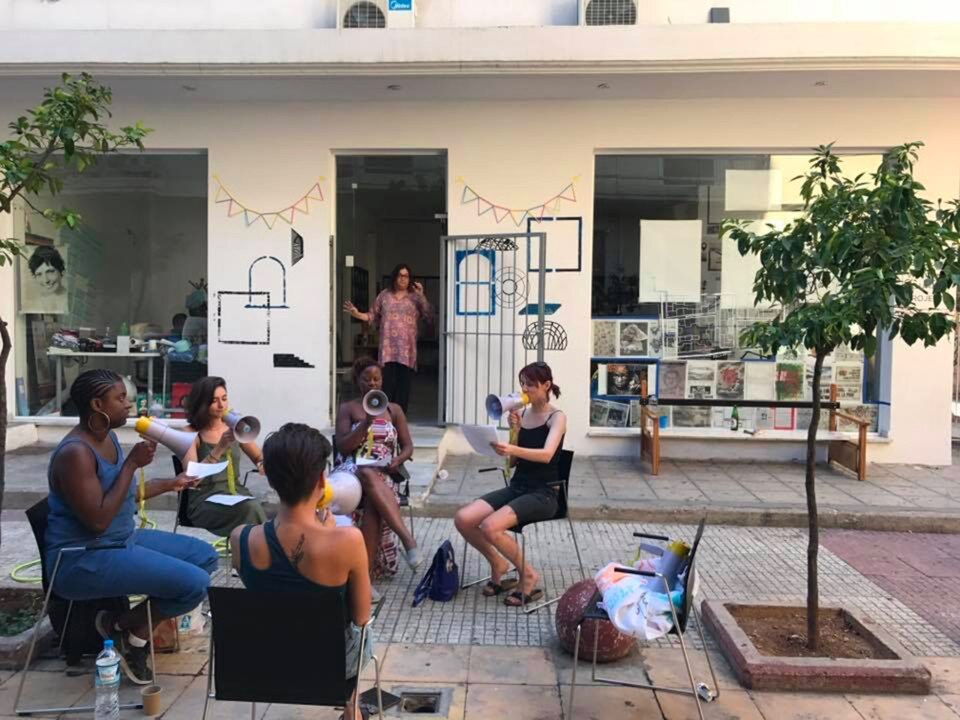
Right near the Exarchia we find the Polytechnic, where in 1973 thousands of people protested against the dictatorship. Since then, the school is a reference point for various movements. The walls are covered in graffiti and the gates are always open. Nearby is also Victoria Square: in the past, it was a well-to-do area but was abandoned in the 1970s and today is a social and cultural crossroads. As early as 2015 it caught the public’s attention when it became filled with refugee tents. Currently, it hosts activities like food and medicine distribution, but there are also traditional, pleasant bars.
It’s no coincidence that the Victoria Square Project was born here for Documenta, based on the project by the American artist Rick Lowe and managed together with Maria Papadimitriou. It’s a key location for groups and individuals, locals, immigrants and refugees. It organises and hosts activities of all kinds, like exhibitions, courses, parties. The place is beloved because, in the words of Maria Papadimitriou, people feel safe here.
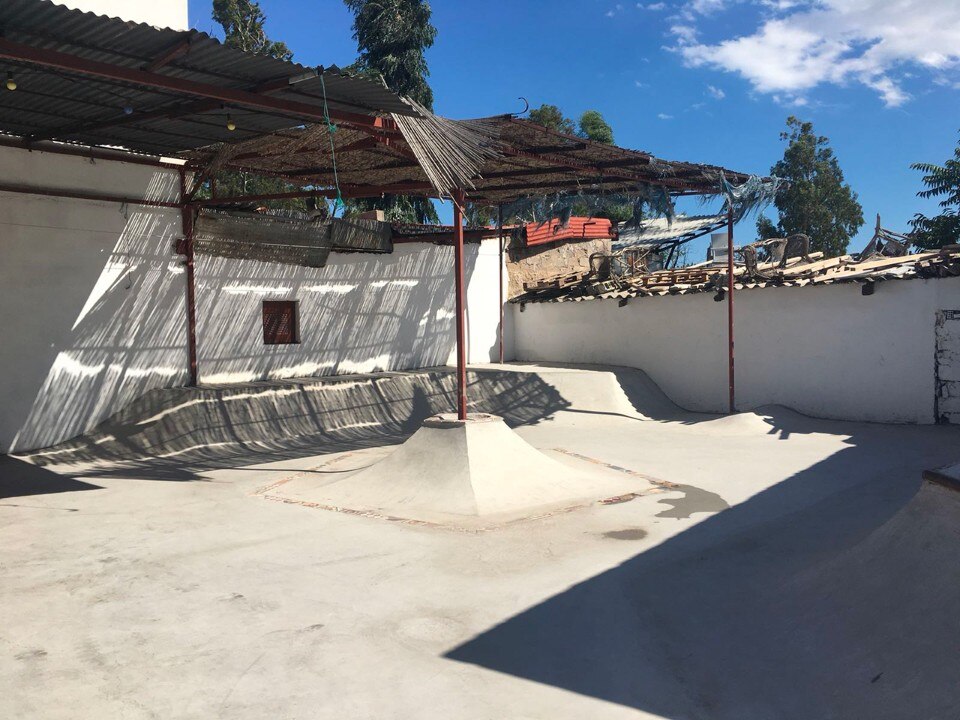
Papadimitriou is also credited with another initiative, the Souzy Tros Art Canteen: the small délabrè space that was once a home and then a workshop, is found in an extremely popular area. Papadimitriou opens it periodically for activities related to solidarity and sharing, from dinners to sewing classes. Today, based on the projects of other artists, including Eleonora Meoni, a skate park for kids from the refugee centre will be built. So Athens has proven how depression can be transformed into energy and experimentation, and how art can play a part in reflecting on the meaning of life and civil coexistence.


